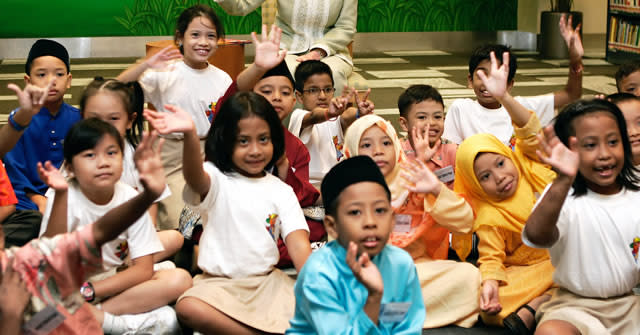‘S’poreans have moved beyond race issues’
Recently, a lot has been said about people who made racist comments online.
They have been labelled "young", "stupid", "intolerant", "Chinese" and "immature".
The chastising has been intense. The "tsk-tsking" even more so.
And most of it was triggered earlier this week, as a local student from Nanyang Polytechnic (NYP) said something not very bright and very hurtful about a minority race on Twitter and it started to spread like wildfire resulting in full blown Internet vigilantism at its finest.
But here is one thing that we should come to terms with: the ease of technology at our fingertips will only make people shoot off publicly more often than not, as it is quite evident that we really enjoy incessantly molesting our smart phones all the time and wearing our hearts on our sleeves.
Ready or not, this has already become a fact of life.
However, I'm still very confident that Singaporeans by and large are fair-minded enough to be disdainful of racism in any form.
Which is why I will argue until I'm hoarse that the swift and decisive reaction of the Internet mob against the NYP student should make you feel safe and warm at night.
If there ever was a clear indication that anyone who is racially intolerant will not be tolerated, this is it.
There is simply no room for negotiation about this.
'Peaceful for 40 years'
And this brings me very nicely to my next point.
Why is there always such a strong need for the authorities to constantly bring up the matter of the racial riots in 1964 and 1969 as a ghastly reminder of how things can go pear-shaped?
Yes, race is always a sensitive issue. Especially so in Singapore, where it used to be publicly accepted that we had four major races but now we have the same four, plus a smorgasbord of about 50 others.
But seen in its historical context, the clashes that supposedly occurred in the 1960s had as much to do with politics, poverty and our post-colonial hang-up than merely a conflict arising from the issue of race alone.
Don't fret, as this sort of mythologising of racial tension coming to a head has plagued more famous examples. Because if you thought that the Rwandan Genocide was really just a matter of Hutu versus Tutsi and nothing else, I'm sorry, but you've bought one of the greatest stories the media ever sold.
Therefore, to constantly warn Singaporeans about the potential of racial turmoil in this day and age, is to promote counter-factual thinking at its worst.
Because the fact of the matter is, race is but one issue and Singapore has been peaceful on the racial front for more than 40 years since the last time riots occurred.
I will continue to argue until I am hoarse again that in this period of time, Singaporeans have been bending over backwards to be accepting of one another.
And this is despite the fact that there have been national policies implemented over the years that have served to diminish the stake that minority races have in Singapore leaving them more marginalised than ever.
Institutionalised marginalisation?
What are some of these policies? Well, let's see.
Here's one. Off the top of my head, I can think of the Singapore Armed Forces policy of selectively allowing only a small number of Malays to become key appointment holders.
Here's another. The recent liberal immigration policy of importing massive numbers of labourers and expatriates that displace the already small number of minorities in Singapore.
How such policies ought to inspire confidence in our minority races, beats me.
All I know is that we could argue that our relative peacefulness could be the result of crafty social engineering.
But I will reply by saying that it could be true, but it sure wasn't a fluke.
So, instead of constantly making people of various races wary of the potential of flare-ups, we should look first to the facts and thank Singaporeans for keeping it together for the past four decades.
Credit should be given where credit is due.
Besides, as a society, we have moved far beyond the days of dysentery, disobedience and Dystopia of the 1960s.
These days, we are more into the sexy concepts such as owning a "First World Parliament" and establishing a "New Normal".
And perhaps we should also look towards addressing the brewing xenophobia sentiment.
That's where the next bugbear really lies.
Belmont Lay is one of the editors of New Nation, an online publication that focuses on telling stories and publishing big pictures.



